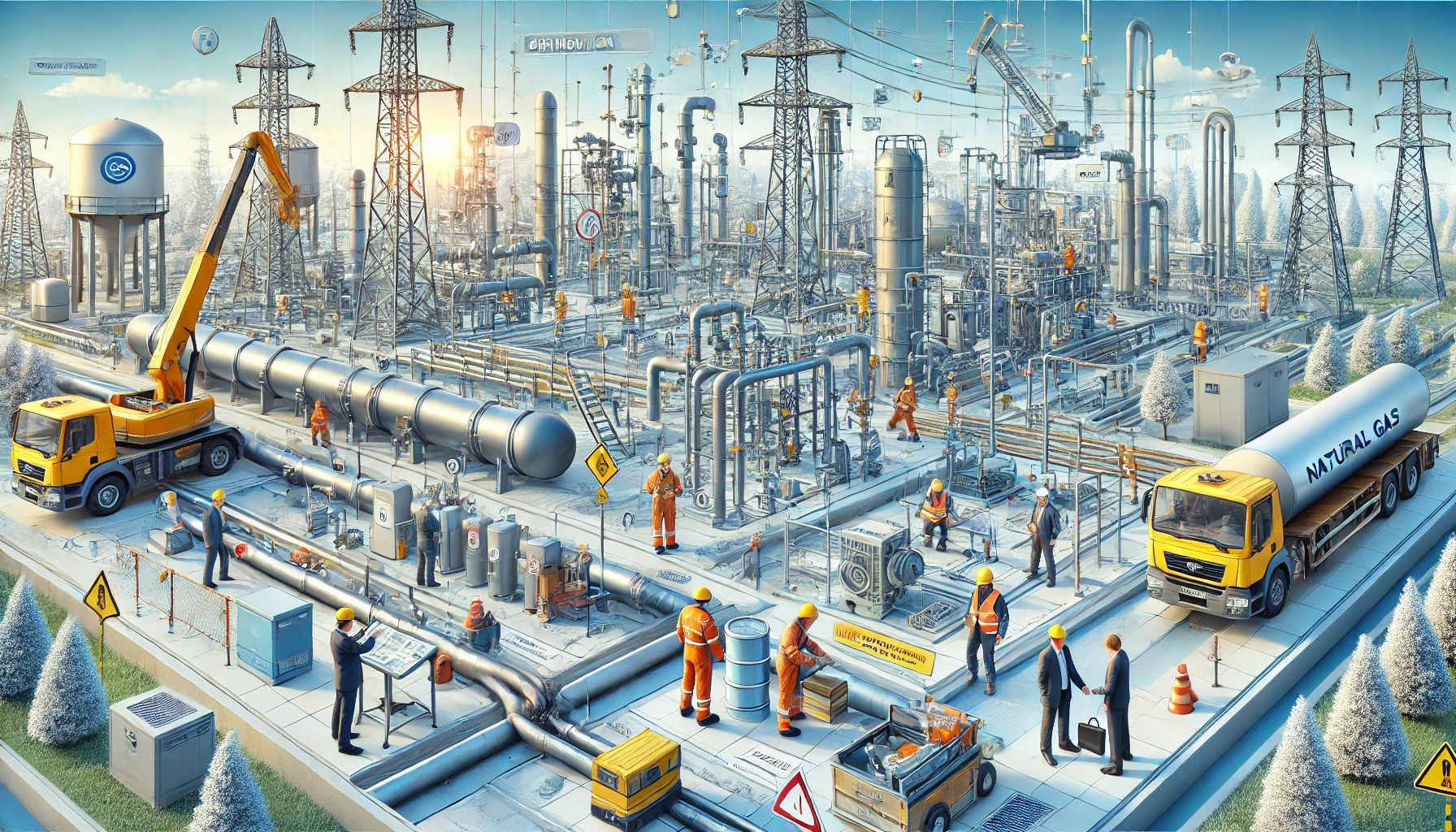Table of Contents
- Introduction
- Overview of Natural Gas Distribution
- Roles and Responsibilities in Natural Gas Distribution
- Benefits of a Career in Natural Gas Distribution
- Challenges in Natural Gas Distribution
- Required Education and Skills
- Job Market and Salary Expectations
- Career Advancement Opportunities
- Work-Life Balance
- Future Outlook of Natural Gas Distribution
- Conclusion
- FAQs
Introduction
Choosing a career path can be a daunting decision. Among the many options, one industry that often flies under the radar is natural gas distribution. So, is natural gas distribution a good career path? In this blog post, we’ll delve into the specifics of this industry, explore the roles and responsibilities, and discuss the potential benefits and challenges. We’ll also look at the required education and skills, job market trends, salary expectations, and the future outlook for this career path.
Overview of Natural Gas Distribution
Natural gas distribution involves the delivery of natural gas from the transportation pipelines to the end-users, including residential, commercial, and industrial customers. This process is crucial for ensuring that natural gas, a key energy source, is available for heating, cooking, and generating electricity. The industry is highly regulated and requires a dedicated workforce to manage the complex infrastructure and ensure safety and reliability.
Roles and Responsibilities in Natural Gas Distribution
Distribution Engineers
Distribution engineers design and oversee the construction and maintenance of the natural gas distribution network. They ensure that the system is efficient and meets all safety regulations.
Technicians and Field Workers
These professionals handle the installation, maintenance, and repair of gas lines and equipment. They play a crucial role in ensuring the safe and continuous supply of natural gas.
Safety Inspectors
Safety inspectors are responsible for monitoring the distribution network to identify and mitigate potential hazards. They conduct regular inspections and ensure compliance with safety standards.
Customer Service Representatives
Customer service representatives assist customers with their natural gas services, addressing any issues or concerns they may have. They play a vital role in maintaining customer satisfaction.
Benefits of a Career in Natural Gas Distribution
Job Stability
The natural gas industry is essential for modern life, providing a stable and consistent demand for professionals in this field. This stability can translate into long-term job security.
Competitive Salaries
Careers in natural gas distribution often come with competitive salaries and benefits packages, making it a financially attractive option.
Opportunities for Advancement
There are numerous opportunities for career growth within the natural gas industry. With experience and further education, professionals can move into higher-paying and more specialized roles.
Contribution to Energy Supply
Working in natural gas distribution means contributing to the energy supply chain, which is crucial for the functioning of society. This can provide a sense of fulfillment and purpose.
Challenges in Natural Gas Distribution
Safety Risks
Natural gas distribution involves handling a potentially hazardous substance, which can pose safety risks. Workers must adhere to strict safety protocols to prevent accidents.
Physical Demands
Some roles in natural gas distribution can be physically demanding, requiring workers to operate in various weather conditions and challenging environments.
Regulatory Compliance
The industry is heavily regulated, requiring workers to stay updated with changing laws and regulations. This can be a demanding aspect of the job.
Required Education and Skills
Education
Most entry-level positions in natural gas distribution require at least a high school diploma or GED. However, roles such as distribution engineers typically require a bachelor’s degree in engineering or a related field.
Technical Skills
Technical skills are crucial in this field, including knowledge of gas systems, safety protocols, and relevant software tools.
Problem-Solving Abilities
Professionals in this field must be adept at troubleshooting and resolving issues quickly to maintain the integrity of the distribution network.
Communication Skills
Good communication skills are essential for coordinating with team members and providing excellent customer service.
Job Market and Salary Expectations
Job Market
The job market for natural gas distribution is robust, with consistent demand for skilled professionals. This demand is driven by the ongoing need for energy infrastructure maintenance and expansion.
Salary Expectations
Salaries in this field can vary based on role, experience, and location. According to the Bureau of Labor Statistics, distribution engineers can earn an average annual salary of around $80,000, while technicians and field workers can earn between $50,000 and $70,000.
Career Advancement Opportunities
There are several pathways for career advancement in natural gas distribution. Professionals can pursue additional certifications and education to qualify for higher-level positions. For instance, an engineer might pursue a Professional Engineer (PE) license, which can open doors to managerial roles.
Work-Life Balance
Work-life balance in natural gas distribution can vary depending on the specific role. While some positions may require on-call hours or emergency response, many companies strive to provide a balanced schedule to ensure employee well-being.
Future Outlook of Natural Gas Distribution
The future of natural gas distribution looks promising, with ongoing investments in infrastructure and technological advancements. As the world continues to seek reliable and cleaner energy sources, the natural gas industry is likely to remain a key player.
Conclusion
So, is natural gas distribution a good career path? For those seeking a stable, rewarding, and impactful career, the answer is a resounding yes. With competitive salaries, opportunities for advancement, and a crucial role in the energy sector, natural gas distribution offers a promising career path.
FAQs
Is natural gas distribution a good career path?
Yes, natural gas distribution is a good career path due to its stability, competitive salaries, and opportunities for career growth.
What education is required for a career in natural gas distribution?
Most entry-level positions require a high school diploma, but roles like distribution engineers typically require a bachelor’s degree in engineering.
What are the main responsibilities in natural gas distribution?
Responsibilities can include designing and maintaining the distribution network, installing and repairing gas lines, ensuring safety compliance, and providing customer service.
Are there safety risks in natural gas distribution?
Yes, handling natural gas involves safety risks, and strict safety protocols must be followed to prevent accidents.
What is the job market like for natural gas distribution?
The job market is strong, with consistent demand for skilled professionals due to the ongoing need for energy infrastructure.
Can you advance in a career in natural gas distribution?
Yes, there are numerous opportunities for career advancement, especially with additional education and certifications.




Leave a Comment